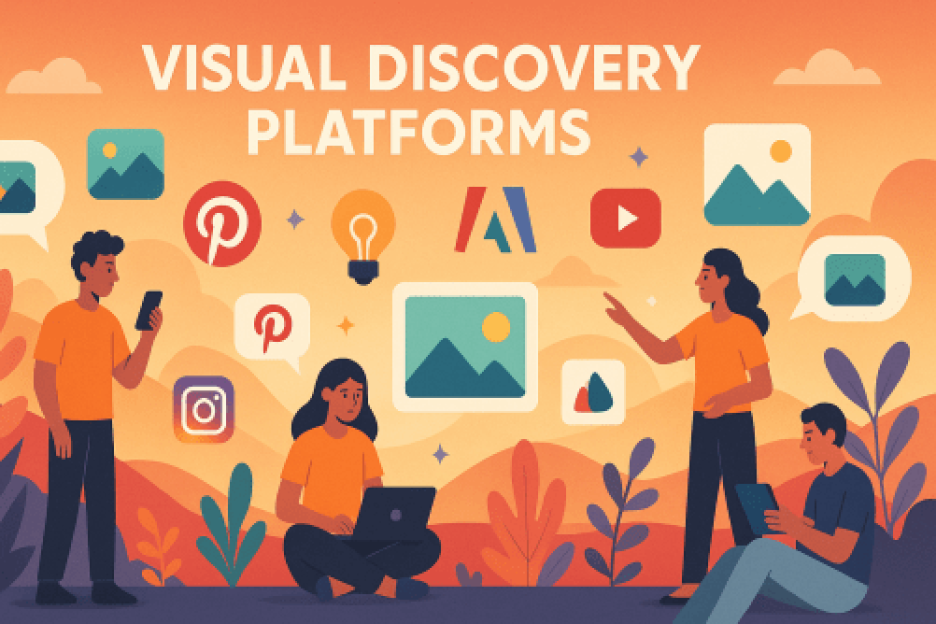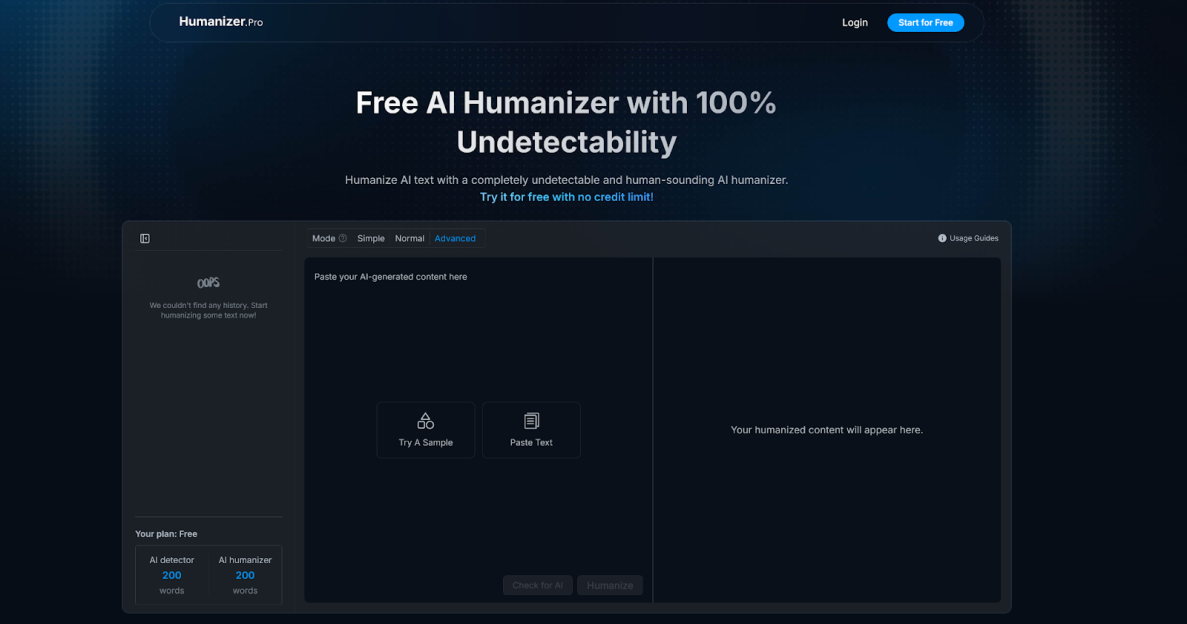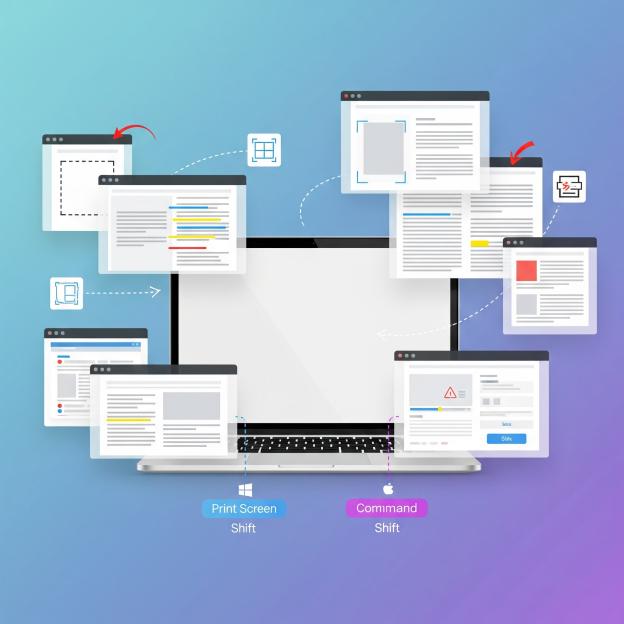Picture this: you’re scrolling endlessly through the same recycled pins, desperately seeking fresh inspiration for your next project. Your mood board feels stale, your creative spark seems dimmed, and Pinterest’s algorithm keeps showing you the same home decor ideas from 2019. Sound familiar? You’re not alone in this creative rut.
Millions of users are breaking free from Pinterest’s echo chamber, discovering vibrant new platforms where originality thrives and inspiration flows freely. Whether you’re a designer hunting for cutting-edge trends, a business owner seeking authentic marketing visuals, or simply someone who craves fresh creative stimulation, a world of dynamic alternatives awaits your exploration.
Why Look Beyond Pinterest?
Pinterest has dominated the visual discovery space for over a decade, but the landscape is evolving rapidly. Many users are experiencing Pinterest fatigue â a sense that the platform has become oversaturated with repetitive content and aggressive advertising. Additionally, recent algorithm changes have made it harder for small creators to gain visibility, pushing many to seek alternative platforms for visual inspiration.
The rise of new social platforms, changing user preferences, and innovative features have created exciting opportunities for those seeking Pinterest competitors. These alternatives often offer better engagement rates, more diverse communities, and unique features that Pinterest lacks.
Top Pinterest Alternatives for 2025
1. We Heart It â The Original Inspiration Platform
We Heart It predates Pinterest and remains one of the strongest Pinterest alternative apps. This platform focuses purely on inspiration without the commercial pressure that Pinterest has embraced.
Key Features:
- Clean, distraction-free interface
- Strong community engagement
- No promoted pins or ads cluttering feeds
- Excellent tagging system for discovery
- Mobile-first design approach
Best For: Users seeking pure inspiration without commercial interruption, teenagers and young adults, fashion and lifestyle enthusiasts.
User Base: Over 45 million registered users worldwide, with particularly strong engagement in the US market.
2. Behance â The Creative Professional’s Choice
Adobe’s Behance stands out as the premier visual discovery platform for professional creatives. Unlike Pinterest’s DIY focus, Behance showcases high-quality, original work from designers, photographers, and artists.
Key Features:
- Project-based portfolio system
- Integration with Adobe Creative Suite
- Professional networking opportunities
- High-quality, original content
- Industry recognition and awards
Best For: Graphic designers, web developers, photographers, artists, and creative agencies looking for professional inspiration and networking.
Unique Advantage: Direct connection to creative professionals and their original work, not just inspiration images.
3. Tumblr â The Creative Expression Hub
While not traditionally considered a Pinterest competitor, Tumblr’s visual-heavy approach and creative community make it an excellent alternative for artistic inspiration.
Key Features:
- Multimedia post formats
- Reblogging system for content discovery
- Strong artistic and creative communities
- GIF and video support
- Customizable blog themes
Best For: Artists, writers, photographers, and anyone seeking authentic creative expression and alternative aesthetic inspiration.
Community Strength: Known for fostering underground creative movements and supporting emerging artists.
4. Dribbble â Designer’s Daily Inspiration
Dribbble serves as both a visual inspiration platform and professional networking tool specifically for the design community.
Key Features:
- Shot-based content sharing
- High-quality design work
- Job board integration
- Color and tag-based discovery
- Professional portfolio hosting
Best For: UI/UX designers, graphic designers, and anyone seeking cutting-edge design inspiration.
Quality Focus: Invitation-only posting ensures consistently high-quality content.
5. Flickr â The Photography Powerhouse
For photography enthusiasts, Flickr remains unmatched as a Pinterest alternative for images, especially for discovering original, high-quality photographs.
Key Features:
- Massive photo library
- Advanced search and filtering
- Creative Commons licensing options
- Photography groups and communities
- Technical photography details (EXIF data)
Best For: Photographers, photo enthusiasts, and users seeking high-quality, original photography for inspiration or licensing.
Storage Advantage: Offers 1TB of free storage for photo uploads.
6. Ello â The Ad-Free Creative Network
Ello positions itself as the anti-advertising social platform, making it an appealing Pinterest substitute for users tired of commercialization.
Key Features:
- No advertisements or promoted content
- Beautiful, minimalist interface
- Focus on art and creative work
- Creator-friendly policies
- High-quality community standards
Best For: Artists, photographers, and creative professionals seeking an ad-free environment for sharing and discovering work.
Philosophy: Built on the principle that social networks should serve users, not advertisers.
7. Milanote â The Creative Project Organizer
Milanote functions as both a mood board alternative and project management tool for creative professionals.
Key Features:
- Visual project organization
- Collaboration tools
- File attachment capabilities
- Template library
- Note-taking integration
Best For: Creative teams, freelancers, and anyone managing visual projects requiring organization and collaboration.
Workflow Integration: Seamlessly connects inspiration gathering with project execution.
8. Mix (formerly StumbleUpon) â Algorithmic Discovery
Mix offers a unique approach to content discovery, making it an interesting alternative to Pinterest for users who enjoy serendipitous exploration.
Key Features:
- Interest-based content curation
- Algorithmic content suggestion
- Cross-platform content discovery
- Social sharing capabilities
- Personal collection building
Best For: Users who enjoy discovering unexpected content and exploring diverse topics beyond visual inspiration.
Discovery Method: Uses AI to suggest content based on user interests and behavior.
9. Designspiration â Pure Design Focus
Designspiration caters specifically to the design community, offering a cleaner alternative to Pinterest’s broader approach.
Key Features:
- Design-focused content curation
- Color-based search functionality
- Clean, minimal interface
- High-quality design submissions
- Professional community
Best For: Graphic designers, web designers, and design students seeking professional-quality inspiration.
Quality Control: Moderated submissions ensure consistently high design standards.
10. Juxtapost â The Visual Bookmarking Tool
Juxtapost offers a straightforward approach to visual bookmarking, serving as an excellent Pinterest alternative website for simple inspiration collection.
Key Features:
- Simple visual bookmarking
- Clean organization system
- Browser extension for easy saving
- Social discovery features
- Mobile accessibility
Best For: Users seeking a simple, no-frills approach to collecting and organizing visual inspiration.
Simplicity Focus: Prioritizes ease of use over complex features.
11. Pearltrees â Organized Visual Discovery
Pearltrees takes a unique approach to content organization, using a tree-like structure that appeals to users who prefer systematic organization.
Key Features:
- Tree-based organization system
- Collaborative collections
- Educational focus
- Cross-format content support
- Team collaboration tools
Best For: Educators, researchers, students, and users who prefer structured content organization.
Educational Value: Particularly popular in academic and educational settings.
12. Scoop.it â Content Curation Platform
Scoop.it focuses on content curation and thought leadership, making it valuable for business users seeking Pinterest alternatives for business.
Key Features:
- Topic-based content curation
- Publishing tools
- Analytics and insights
- Social media integration
- SEO optimization features
Best For: Content marketers, business professionals, and thought leaders building authority in specific niches.
Business Focus: Designed specifically for professional content curation and marketing.
13. Flipboard â Magazine-Style Discovery
Flipboard’s magazine format offers a unique reading experience that appeals to users seeking curated, high-quality content.
Key Features:
- Magazine-style layout
- Editorial curation
- Social sharing capabilities
- Cross-platform synchronization
- Topic-based organization
Best For: News consumers, magazine enthusiasts, and users who prefer editorial-style content curation.
Content Quality: Professional editorial standards ensure high-quality content selection.
14. Wakelet â Modern Content Collection
Wakelet represents the new generation of content collection tools, offering modern features and clean design.
Key Features:
- Modern, intuitive interface
- Multimedia content support
- Collaboration features
- Educational tools
- Social sharing options
Best For: Educators, students, content creators, and teams requiring collaborative content collection.
Modern Approach: Built with contemporary user expectations and mobile-first design.
15. Paper.li â Automated Content Curation
Paper.li uses AI to create personalized newspapers from social media and web content, offering automated content discovery.
Key Features:
- AI-powered content curation
- Automated newspaper creation
- Social media integration
- Customizable layouts
- Sharing capabilities
Best For: Busy professionals, marketers, and users seeking automated content discovery and curation.
Automation Advantage: Reduces time spent manually curating content.
Comparison Table: Pinterest vs. Alternatives
| Platform | Primary Focus | User Base | Best Feature | Pricing |
|---|---|---|---|---|
| Visual Discovery | 450M+ monthly | Widespread adoption | Free/Premium | |
| We Heart It | Pure Inspiration | 45M+ | Ad-free experience | Free |
| Behance | Professional Creative Work | 20M+ | High-quality portfolios | Free |
| Tumblr | Creative Expression | 472M+ blogs | Multimedia support | Free |
| Dribbble | Design Inspiration | 12M+ | Designer community | Free/Pro |
| Flickr | Photography | 90M+ | Photo quality | Free/Pro |
| Ello | Ad-free Creative Network | 1M+ | No advertisements | Free |
| Milanote | Project Organization | 1M+ | Collaboration tools | Free/Paid |
| Mix | Content Discovery | 25M+ | Algorithmic curation | Free |
| Designspiration | Design Focus | 2M+ | Design-specific content | Free |
Choosing the Right Pinterest Alternative
For Creative Professionals
If you’re a graphic designer, photographer, or artist, consider platforms like Behance, Dribbble, or Ello. These platforms prioritize original creative work and offer networking opportunities with other professionals.
For Business Users
Content marketers and business owners should explore Scoop.it, Flipboard, or Mix for their content curation and marketing capabilities.
For Personal Inspiration
Users seeking personal inspiration and lifestyle content will find We Heart It, Tumblr, or Wakelet most appealing for their community-focused approaches.
For Educational Purposes
Educators and students should consider Pearltrees, Wakelet, or Milanote for their organizational and collaborative features.
Tips for Transitioning from Pinterest
1. Export Your Pinterest Data
Before fully committing to an alternative, export your Pinterest boards and pins. This ensures you don’t lose valuable content you’ve collected over time.
2. Start with Multiple Platforms
Don’t limit yourself to one alternative. Many users successfully use 2-3 platforms simultaneously to meet different needs.
3. Focus on Quality Over Quantity
Most Pinterest alternatives prioritize quality content over viral potential. Adjust your expectations and appreciate the higher content standards.
4. Engage with Communities
Unlike Pinterest’s algorithm-driven discovery, many alternatives rely on community engagement. Actively participate in discussions and follow creators you admire.
5. Explore Platform-Specific Features
Each alternative offers unique features that Pinterest lacks. Take time to explore and utilize these distinctive capabilities.
Future of Visual Discovery Platforms
The visual discovery landscape continues evolving rapidly. Emerging trends include:
- AI-powered content curation becoming more sophisticated
- Virtual and augmented reality integration for immersive inspiration
- Blockchain-based creator monetization systems
- Enhanced collaboration tools for team projects
- Voice and video search capabilities
These developments suggest that Pinterest alternatives will continue innovating and offering unique value propositions to attract users seeking fresh experiences.
Mobile Apps and Accessibility
Most Pinterest alternative apps offer mobile versions, but quality varies significantly. We Heart It, Behance, and Flipboard provide excellent mobile experiences, while others like Ello and Designspiration are more desktop-focused.
When choosing an alternative, consider your primary usage patterns. If you frequently browse on mobile devices, prioritize platforms with robust mobile applications.
SEO and Discoverability Benefits
Many Pinterest alternatives offer superior SEO benefits for content creators:
- Behance projects often rank highly in Google searches
- Tumblr posts can gain significant organic search traffic
- Flickr images frequently appear in Google Image results
- Medium and Scoop.it content builds domain authority
This improved discoverability makes these platforms valuable for content creators and businesses seeking broader reach.
Community and Culture Differences
Each platform cultivates distinct community cultures:
- Pinterest: Mainstream, commercial, aspirational
- Tumblr: Alternative, artistic, expressive
- Behance: Professional, polished, business-focused
- We Heart It: Young, authentic, emotional
- Dribbble: Technical, skilled, design-centric
Understanding these cultural differences helps users find communities aligned with their values and interests.
Privacy and Data Considerations
Privacy-conscious users should evaluate each platform’s data collection practices:
- Ello prioritizes user privacy and minimal data collection
- Flickr offers comprehensive privacy controls
- Tumblr provides granular privacy settings
- Mix and Flipboard collect data for personalization
Review privacy policies carefully, especially if data protection is a primary concern.
Content Creation and Monetization
For content creators seeking monetization opportunities, different platforms offer varying potential:
- Behance connects creators with potential clients
- Dribbble offers job board access for premium users
- Flickr provides licensing opportunities through Getty Images
- Tumblr supports tip jars and creator funds
Consider monetization potential when selecting platforms for professional creative work.
International Availability and Localization
US users have access to all mentioned platforms, but international availability varies:
- We Heart It: Global availability with strong US presence
- Behance: Available worldwide with US headquarters
- Tumblr: Global platform with US-based servers
- Dribbble: International community with US focus
Most platforms offer English interfaces and US-friendly features, making them accessible to American users.
Integration and Workflow Considerations
Modern creators often use multiple platforms simultaneously. Consider integration capabilities:
- Behance integrates with Adobe Creative Suite
- Flickr connects with photo editing software
- Tumblr offers extensive third-party app support
- Milanote integrates with project management tools
Choose platforms that complement your existing creative workflow.
Conclusion: Finding Your Perfect Pinterest Alternative
The search for the ideal Pinterest alternative depends entirely on your specific needs, creative goals, and community preferences. Whether you’re a professional designer seeking cutting-edge inspiration on Behance, an artist looking for authentic expression on Tumblr, or someone simply tired of Pinterest’s commercial saturation and drawn to We Heart It’s pure inspiration, the perfect platform awaits your discovery.
The key lies not in finding a perfect replacement, but in embracing the diversity of available options. Many successful creators use multiple platforms simultaneously, leveraging each platform’s unique strengths. Behance for professional networking, Tumblr for creative expression, We Heart It for pure inspiration, and Milanote for project organization.
As the visual discovery landscape continues evolving, these alternatives offer fresh perspectives, engaged communities, and innovative features that challenge Pinterest’s dominance. The future belongs to platforms that prioritize authentic creativity, meaningful engagement, and user-centric experiences over algorithmic manipulation and commercial saturation.
Your creative journey deserves platforms that inspire rather than overwhelm, communities that support rather than compete, and tools that enhance rather than complicate your creative process. Explore these alternatives, experiment with different approaches, and discover the platforms that truly resonate with your creative vision.
The world of visual inspiration extends far beyond Pinterest’s borders. Your next breakthrough idea, perfect color palette, or creative collaboration might be waiting on a platform you haven’t discovered yet. Take the leap, explore these alternatives, and rediscover the joy of authentic creative inspiration.







